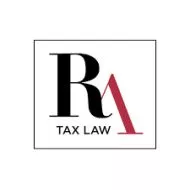The 2023 Federal Budget included draft legislation which would implement a 2% tax on public corporations' repurchasing of shares from their investors. According to the Fall 2022 Economic Statement, the purpose of the tax on share buybacks is to “encourage corporations to reinvest their profits in their workers and businesses”.
The tax would apply to public corporations, as well as publicly traded real estate investment trusts, specified investment flow-through (SIFT) trusts, and SIFT partnerships. Purchases of equity by a “specified affiliate” are deemed to be a corporations repurchase of its own equity.
The tax would apply to the net value of the corporation's repurchase of equity for the taxation year. The net value is calculated by subtracting the value of equity issued from the treasury from the value of the repurchase of equity by the corporation.
The tax would apply to repurchases of equity that occur on or after January 1, 2024.
Repurchases of Equity
Share buybacks, or repurchases, represent an alternative for companies to use their money, rather than paying dividends to their investors. When a company repurchases its shares, the total number of outstanding shares is reduced. Corporations often elect to buyback shares from their investors in order to affect an increase in share price.
For the purpose of the share buyback tax, repurchases of shares through both normal course issuer bids and substantial issuer bids are subject to the tax.
Exceptions
Certain transactions would be exempt from the tax on share buybacks, including the issuance and cancellation of debt-like preferred shares, which are shares with a fixed dividend and redemption entitlement. The issuance and cancellation of shares that occur in certain corporate reorganizations and acquisitions (such as amalgamations, liquidations, and share-for-share exchanges) would also be excluded from the new tax.
Also, companies repurchasing less than $1 million of equity in a taxation year would not be subject to the share buyback tax (the “de minimis rule”).
Anti-avoidance Rules
There are anti-avoidance measures included in the legislation for the purpose of enforcing the new tax.
If the repurchase of equity is through a transaction or series of transactions where the primary purpose of the transaction or series is to reduce the amount subject to the share buyback tax, it will be included when calculating the tax.
Also, where the transaction or series is to a person where the primary purpose is to avoid application of the share buyback tax, the person will be deemed a “specified affiliate” and the purchase of equity with therefore be included in calculating the share buyback tax.
Overall, the new amendments will make corporations think twice with what they plan to do with their profits. If your corporation needs assistance with these changes, or with any tax mater, give us a call!
The content of this article is intended to provide a general guide to the subject matter. Specialist advice should be sought about your specific circumstances.


